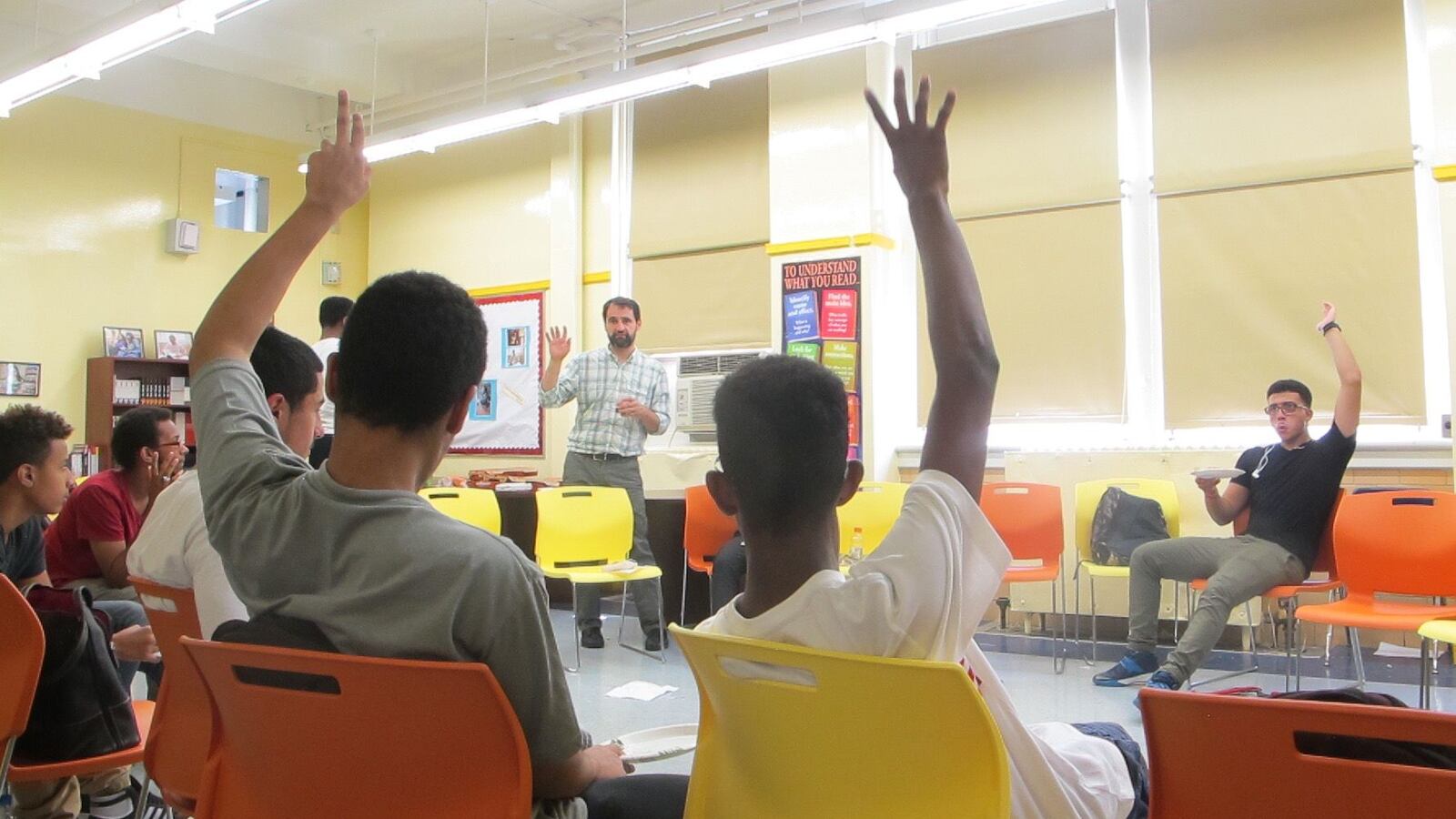On a recent Thursday, Lowell Herschberger asked a group of Brooklyn high school students: If you could have any job during the school year, what would you choose?
One said retail. Another suggested “someplace in a mall.”
Those weren’t the answers Herschberger, director of career and education programs at Cypress Hills Local Development Corporation, wanted to hear. He quickly steered the conversation towards jobs at technology firms or companies like Google. But the students’ answers were telling — they show both the challenge he faces and the reason he helped launch a new program.
The program provides summer internships for about 40 students this year who are working at various companies or helping with computer repair around their school. It’s designed to give students work experience, and also to draw a distinction between summer “jobs” used to make extra cash versus work experience that serves as a step on a career ladder.
The program partners with the students’ school — the Academy of Innovative Technology in Brooklyn — along with the city’s Department of Education and Department of Youth and Community Development. Students are paid through the city’s Summer Youth Employment Program.
Distinguishing between a “career” and a “job” is a critical shift in mindset for many students that could have implications beyond the summer, Herschberger said. Many of these students still have trouble picturing themselves in high-paying technology fields, he said.
“They know a lot of people in retail and food service, so it’s only logical those are the jobs they think of,” Heschberger said. “It’s part of the purpose of the program to broaden awareness.”
During a recent Thursday meeting, as students chowed down on pizza, they also chewed over the difference between a job and a career.
“What is a career?” Melissa Kissoon, a career counselor, asked the room of students.
“A long-term job,” one student ventured.
“A career and a job are two different things,” she responded.
This program is in its pilot phase this year, and was launched in response to a February report by the Community Service Society. The report suggests connecting the summer internship experience with students’ academic work in order to give them real-world skills that will ultimately help them in the job market. This program does just that, and also allows students to earn some high school credit during the summer months.
Senior Nyjah Daniel wants to work in cybersecurity and said he has already built a computer from scratch. His internship repairing computers at the school might help him when he looks for a job at a technology firm in the future.
Herchberger said the program is “a pilot in every sense of the word” and he listened to each student’s responses for clues about how to revamp the program next year. But for all students, finding an explicit connection between a high school job and a long-term career plan is key, he said.
“It’s the whole notion that education needs to make sense in order for it to be effective,” he said.

